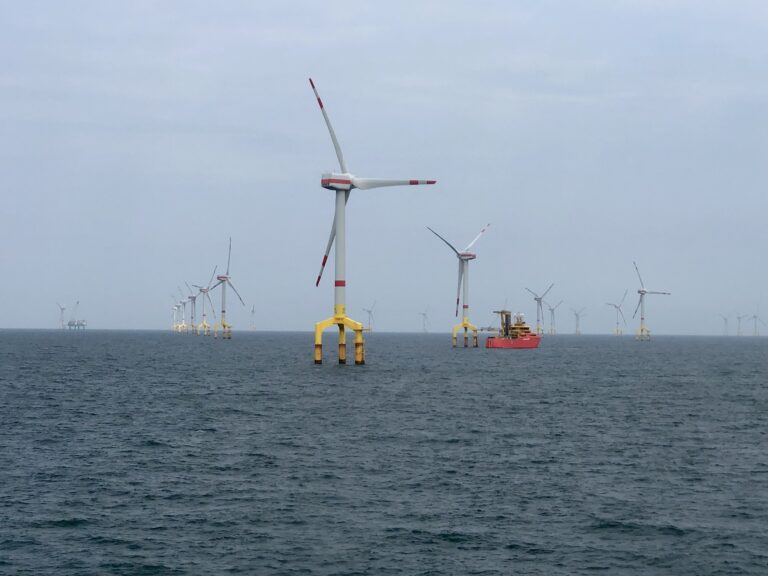
From dangers on the seabed to sustainable wind energy
16. February 2024

19. February 2024 - from Folke Heyer
Established manufacturers are increasingly focusing on the electrification of off-road vehicles such as construction machinery – and not just because this can mean longer operating times. Start-ups and manufacturers of other off-road or agricultural machines are also looking for innovative solutions for efficiently electrifying their products.

What does a thermal module do?
Thermal modules are used to regulate the temperature of batteries in electric drives. The air/water heat pump used by Rheinmetall in these devices follows the refrigeration principle. When the outdoor temperature is high, the process involves passing coolant from the battery over a heat exchanger in order to regulate the temperature of the battery itself or the driver’s cab with cooling performance of up to 8 kW. The reverse occurs in cold temperatures: The “residual heat” from the ambient air is used to generate heat inside, thereby helping to regulate the battery temperature. This delivers heating power of up to 11 kW, effectively eliminating the need for additional heating.
Rheinmetall is following this trend. Among other things, the company is currently working on components for electric off-road vehicles with the aim of increasing their range or their potential operating time.
The people who are hard at work in this area include Michael Lutz, head of the Energy Recovery Systems business unit, and his team of developers in Neckarsulm in Baden-Württemberg. They are currently working to bring a thermal module to market maturity as a complete solution for a wide range of vehicle types – and even boats. Building on the heat pump principle, the module aims to keep the batteries used in electrical drives within a temperature range that allows them to deliver optimal performance. The batteries are cooled or heated depending on their operating status and the outdoor temperature. The module can also be used in the same way to control the temperature in driver’s cabs.
Quick integration
The customer base for the current prototype phase is extremely widespread. In addition to producers of construction machinery and tractors, the interested parties include manufacturers of electric boats, trucks and busses. Also included are producers of other agricultural machinery, as well as companies from the mining industry. And batteries are not the only form of energy involved. Manufacturers of fuel cell drives are also showing interest in the compact module.
Widespread interest
The customer base for the current prototype phase is extremely widespread. In addition to producers of construction machinery and tractors, the interested parties include manufacturers of electric boats, trucks and busses. Also included are producers of other agricultural machinery, as well as companies from the mining industry. And batteries are not the only form of energy involved. Manufacturers of fuel cell drives are also showing interest in the compact module.

Lutz can currently point to more than twenty-five customers that are using prototypes to examine his solution for their particular use case or that have already placed volume production orders – a fact that makes him extremely proud of his sales team. To meet this demand, a small-scale production line was established in Neckarsulm in 2023 and can be easily expanded as and when additional orders are received.
Extensive market potential
Marcus Gerlach, Head of the Central Division at the Rheinmetall Group, confirms: “The markets for the thermal module are currently developing extremely quickly. Although we are mainly handling smaller volumes at present, this technology is opening up huge potential. Our fellow subsidiaries in defence technology have also expressed their interest.”
With this in mind, the business unit – which adopted the advanced 800-volt technology at an early stage – is also examining the possibilities in entirely new areas of application beyond vehicle technology, not least since these also offer considerably greater market potential in the long term.
Meanwhile, the motivation for the current interested parties to use the thermal module is more than justified in light of the extended reach it offers and the potential use cases it encompasses. For example, an electric excavator at a city centre site would be considerably less disruptive than its conventional counterpart, allowing it to work much later in the day.
Click here to receive push notifications. By giving your consent, you will receive constantly information about new articles on the Dimensions website. This notification service can be canceled at any time in the browser settings or settings of your mobile device. Your consent also expressly extends to the transfer of data to third countries. Further information can be found in our data protection information under section 5.